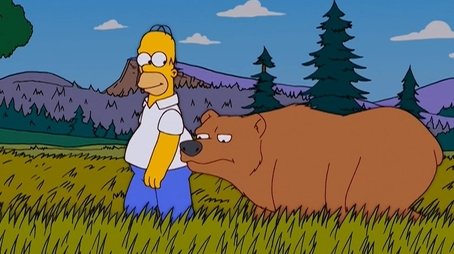
Sorry, we have not watched this yet.

Homer is humiliated when he appears on the news running from a bear that nearly attacks him at the city dump. After Grampa scolds him, he swears to fight the bear himself.
Sorry, we have not watched this yet.